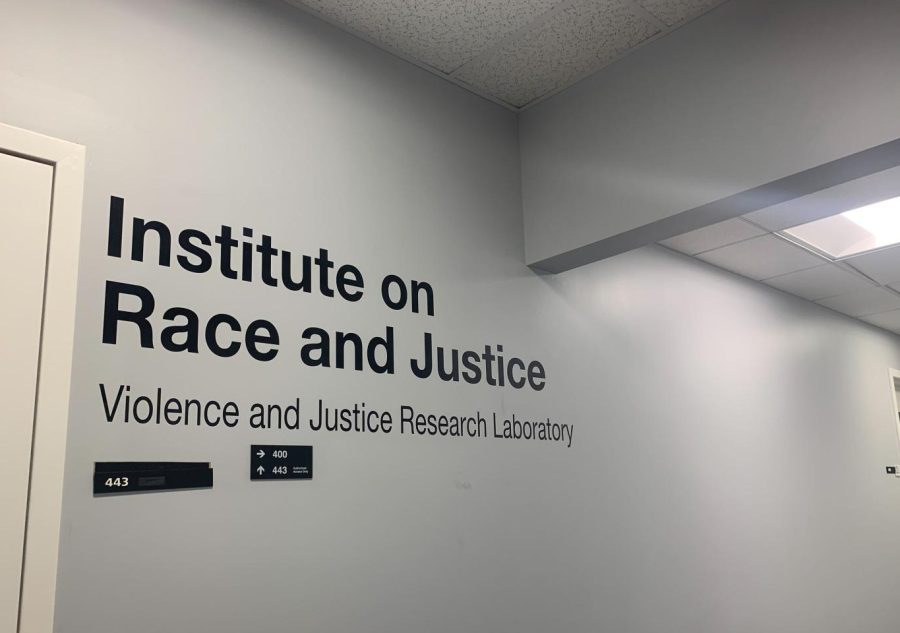Northeastern’s Institute on Race and Justice helps open dialogue between Boston youth, law enforcement
Northeastern’s Institute on Race and Justice hosted the second of its annual Race and Community Dialogue Series Jan. 25 to facilitate conversations between local youth and police.
February 14, 2022
Northeastern’s College of Social Sciences and Humanities hosted its second annual Race and Community Dialogue Series virtually Jan. 25. The Community Advisory Board of the Institute on Race and Justice, or IRJ, compiled a panel of experts including youth participants from local organizations and representatives of regional police departments to discuss the selected topic for the forum, “Race, Youth, and Police Relationships: A Strategy to Build Trust.”
Jack McDevitt, professor of criminology and criminal justice at Northeastern and director of the IRJ, kicked off the conversation with a synopsis of the historical relationship between law enforcement and the youth in Boston and beyond.
“This is really about elevating young people’s voices,” said Harvard professor Harry Harding, who oversees a Roxbury-based group called the Youth and Police in Partnership, or YPP. “Too often in politics… or really any social arena, youth voices are ignored.”
Lieutenant Mark Gillespie of the Massachusetts Bay Transit Authority, or MBTA, spoke about the inclusion of local youth in his team’s efforts to refrain from arresting juveniles. He discussed the MBTA’s peer mediation strategy and its success locally. “If we get youths speaking with youths who are trained as mediators … that’s worked pretty well.”
UMass Boston undergraduate student Carrie Mays, a member of the Boston Community Action Team, or CAT, on Teen Empowerment and recently appointed member of the Civilian Review Board of Police Accountability, asked about the racist origins of police and how officers think about this on a day-to-day basis. The history of law enforcement is deeply rooted in the unfair and often brutal treatment of individuals of color.
Gillespie said that he believes the recruitment process of police departments is an essential piece of the puzzle. “[Police departments] need to try to be reflective of the communities they’re serving,” he said, earning snaps from Mays. “You have to have an acceptance and a tolerance. If you can’t do that, you don’t belong here.”
YPP member Khaleis Smalls asked fellow panelists about the ways mandatory police training protocol has been adjusted in recent months to address police brutality.
Gillespie voiced his belief that de-escalation should be the primary strategy for officers, especially with younger people. “Officers need to practice self-restraint,” Gillespie said. “We are the adults and we need to remember that.”
Voting member of the Municipal Police Training Committee of Massachusetts and Northeastern University alumna Lanita Cullinane said efforts in addressing police brutality must include policy changes. “Training is an important piece of the puzzle” she recognized, but underscored the necessity for “policies in place that guide the training.”
Mays agreed, and highlighted the importance of said policy being community-informed.
“How is the conversation always about [the youth] but [the youth] are never in the conversation?” she said.
The conversation provoked questions from the audience, and the dialogue between youth participants and law enforcement representatives was collaborative throughout the meeting.
However, as multiple panelists expressed, even productive conversations like these are only a start. “Dialogue is not enough,” said Harding. “At the end of the day, dialogue precipitates action. What we really want to see is community action.”







